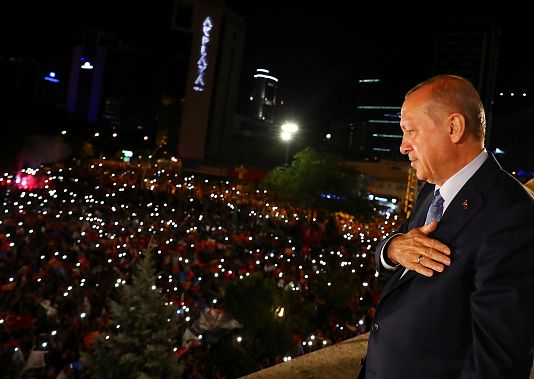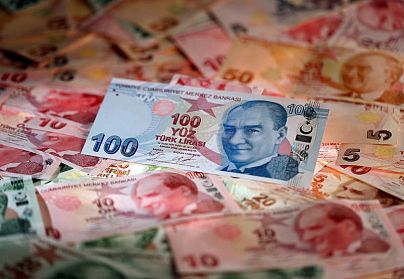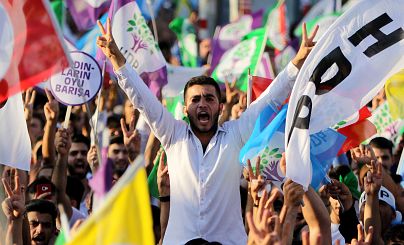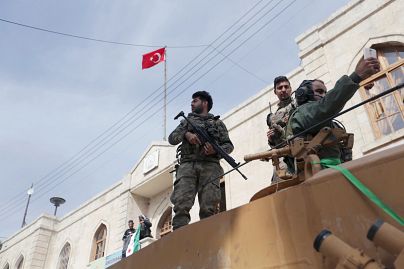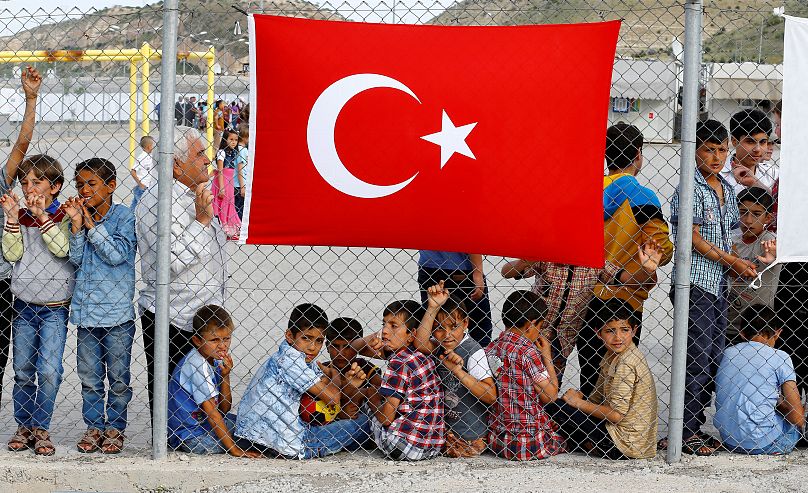Turkey's freshly elected President Erdogan has just fufiled his dream with executive prsidency. But what does it mean for Turkey's war in Syria, its slumping economy, and the Kurds?
Turkey's President Recep Tayyip Erdogan won sweeping new executive powers after his victory in landmark elections on Sunday. But Erdogan was not the only person to claim a victory. His Islamist-rooted AK Party and its nationalist allies also secured a parliamentary majority.
 ADVERTISEMENT
ADVERTISEMENT
 ADVERTISEMENT
ADVERTISEMENT
But what do the election results mean for Turkey and the rest of the world?
Turkey's political structure
Not only did Erdogan win the election, he also won extensive new powers. Parliament has now been weakened and the Prime Minister's role has been abolished.
The defeated opposition candidate Muharrem Ince warned of a "one-man rule."
Fadi Hakura, associate fellow in the Europe programme at Chatham House told Euronews that "in the short to medium term, Turkey will witness more restriction for human rights, civil liberties, and self-expression."
He adds this is especially true as the "presidential powers became effective after the election and with two of the nation's right-wing parties in parliament."
The election could see a coalition forming with one of those nationalist parties, the Nationalist Movement Party (MHP), Turkish writer Nedim Gürsel told Euronews.
The MHP pulled off one of the biggest surprises of the election by winning 11.1 % of the vote. This brings the combined share of parliamentary power of the Justice and Development Party (AKP) and MHP to 53.6% — majority needed by Erdogan, who failed to win an outright majority in parliament.
The economy is in a risky territory
Turkey's currency has fallen some 20% this year against the dollar. Erdogan has repeatedly called on Turks to convert their euro and dollar savings into lira to help bolster the ailing currency.
While Erdogan's victory is likely to be positive for the lira in the short term, Nora Neutrvoom, an economist at ABN Amro told Euronews that the "Turkish economy will face a severe slowdown."
Neutvoom says that a lot of investors "don't agree with his position on the central bank." Erdogan said last month from London that he wants greater control of monetary policy and suggested he wanted to control interest rates. This worries investors as it could mean a loss of independence at the central bank.
The result on the Kurds
One of the big takeaways from the election is that the Kurdish Peoples' Democratic Party (HDP) passed the 10% threshold to enter parliament. The win comes despite their co-leader Selahattin Demirtas campaigning from prison.
Fadi Hakura says "the Kurds will be represented in parliament even if they are not in the majority," adding "it's a good thing."
Erdogan has however ruled out returning to a peace process with the separatist Kurdistan Workers' Party (PKK), which the UK, EU and Turkey deems a terrorist organisation.
Turkey's military role in Syria to continue
In his election victory speech, Erdogan said Turkey will continue to "liberate Syrian lands" so that refugees can return to Syria safely.
Since January, Turkey has been conducting military operations in northwest Syria to clear the border area of the Syrian Kurdish YPG militia, which it sees as a terrorist organisation.
Fadi Hakura said he "suspects that Turkey will have a harder line when it comes to Kurdish militias." But that Turkey's influence in Syria is "significantly limited by the interventions from Russia and Iran."
Turkey and the European Union
Turkey has long been vying for full EU membership. Last month, Erdogan said getting a fully fledged membership was a "strategic goal" for Turkey. But that looks unlikely after widespread criticism following the mass arrests and crack down on civil rights since the aborted coup of July 2016.
Nedim Gürsel says "every day, Turkey is further and further away from meeting EU regulations... Turkey can't be in the EU as it doesn't respect EU rules."
However, he adds that Turkey has a "card to play with the Syrian refugees."
Refugees
Turkey hosts over 3.5 million displaced refugees from Syria's war, according to the Brooking Institute. While Erdogan's opponents said they would send refugees back to their country, Erdogan did not.
Fadi Hakura said he does not believe there will be much change to Turkey's refugee policy, but that "in the short term, it will end the 2016 European agreement," which sends migrants arriving in Greece back to Turkey. Hakura adds that's because of the "precarious state of the economy, however, Turkey does not want any problems with the EU. "











